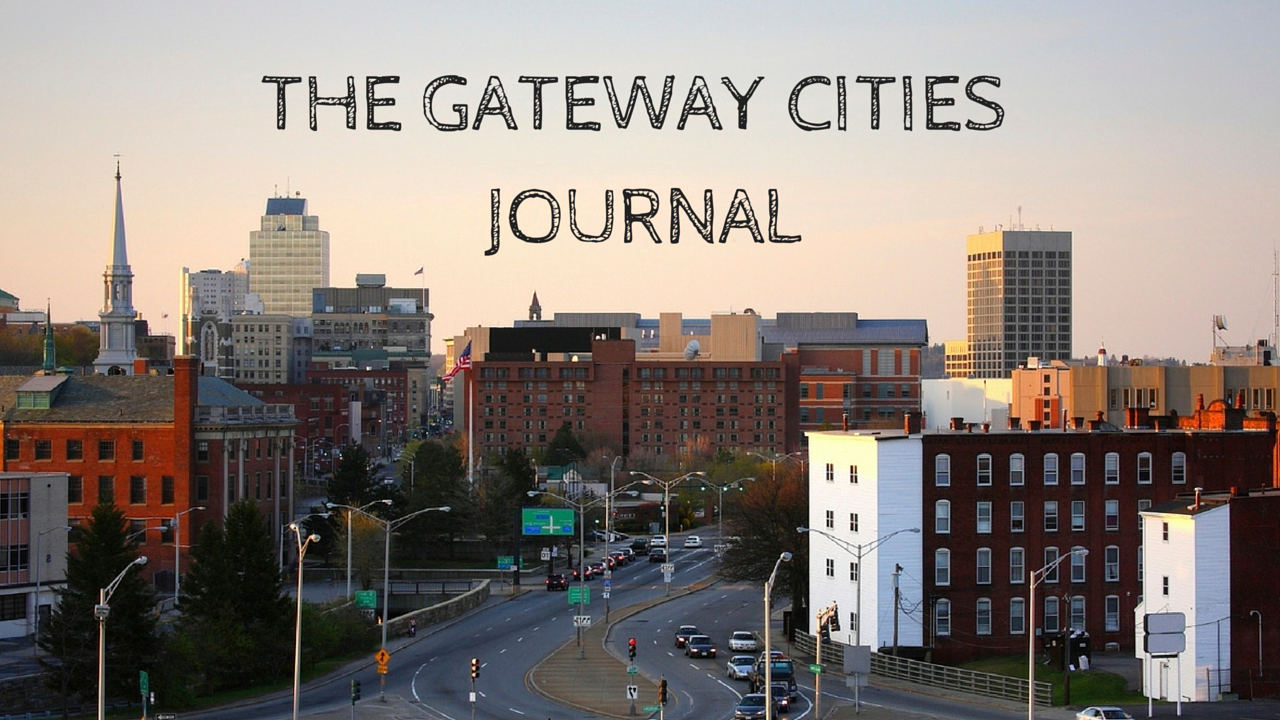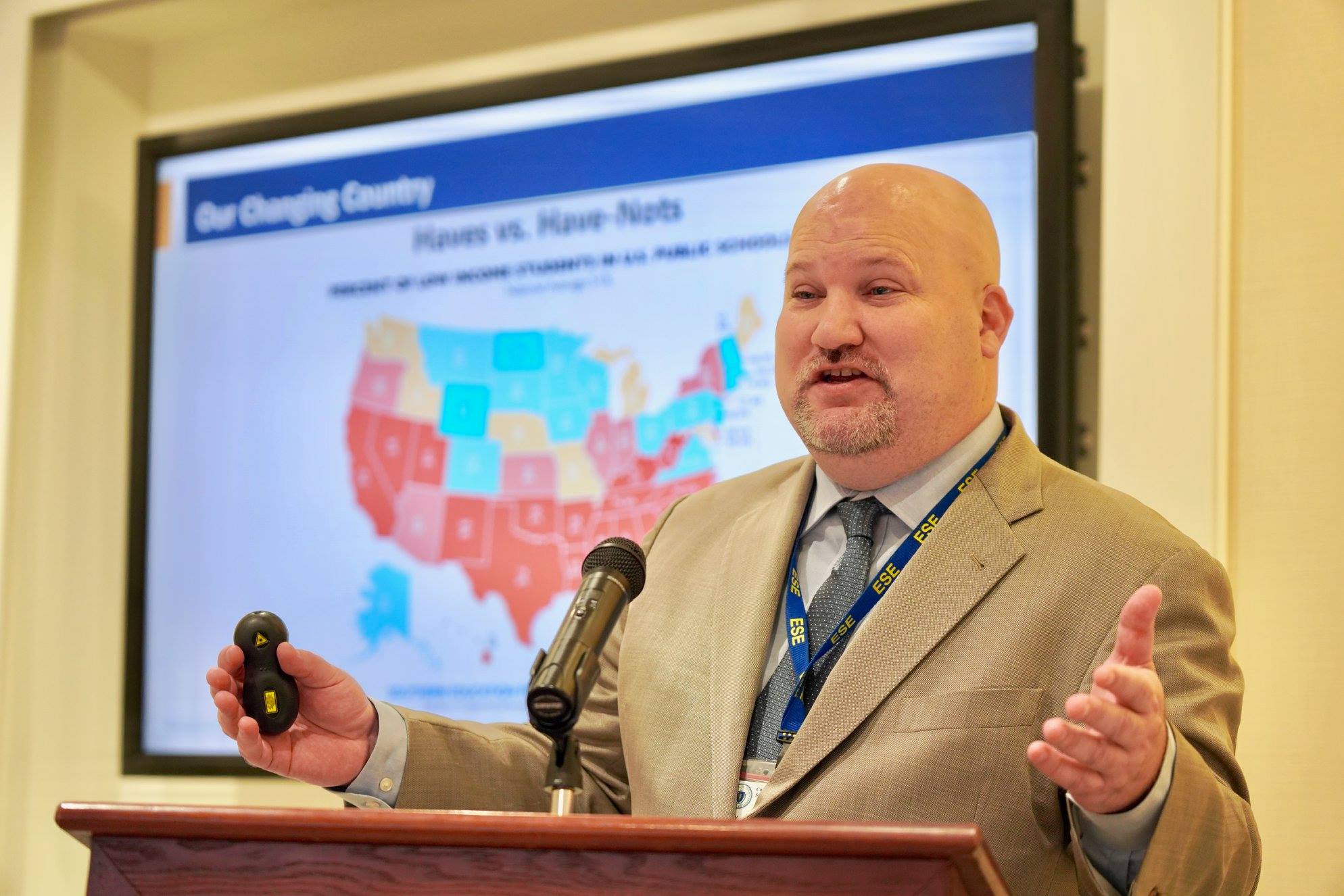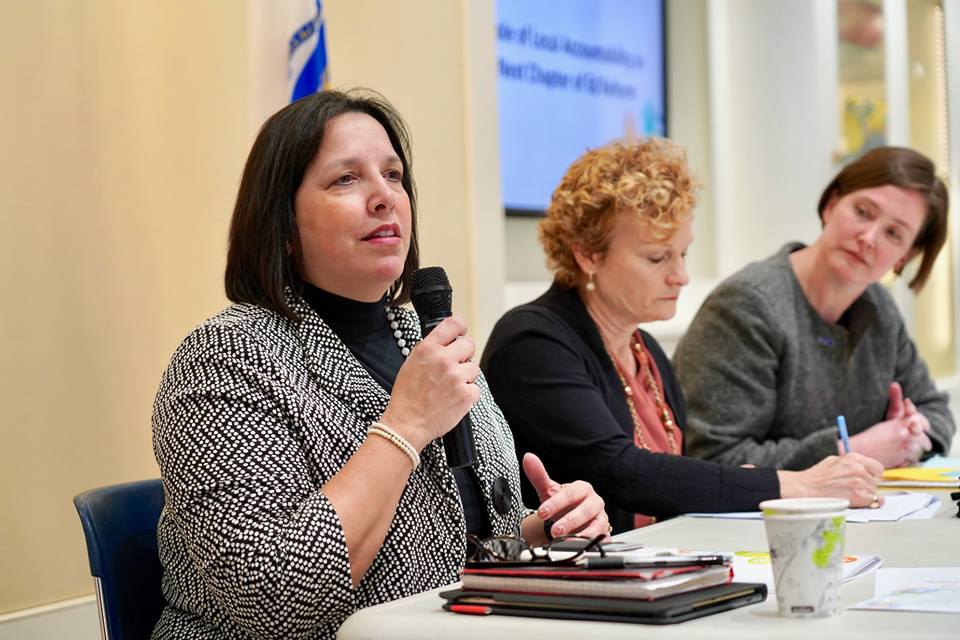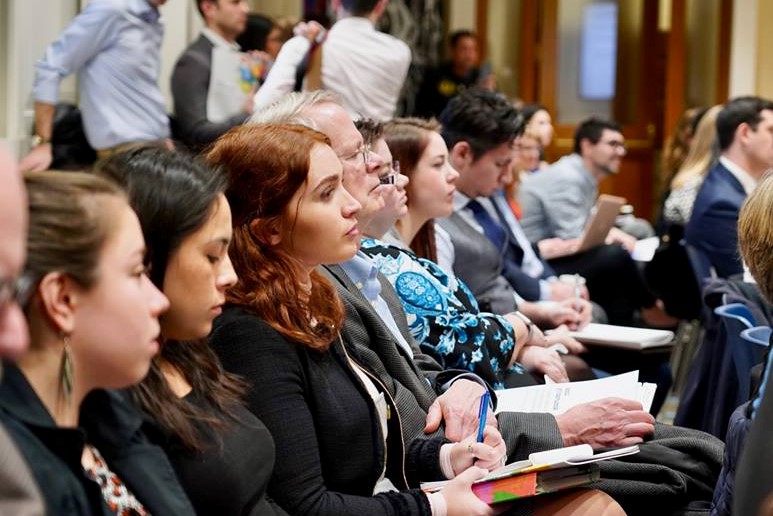
Last week, MassINC held an education policy forum at the State House. The event highlighted findings from a series of three new research reports exploring what it would mean to ask communities to play a larger role defining what they want their schools to produce and provide more accountability for delivering these outcomes. This is a fresh conversation-no previous research has examined the concept of “local accountability” in depth. We were anxious to see how educators would react.

Jeff Riley, Commissioner of Elementary and Secondary Education, responded with his previous experience as the state-appointed receiver in Lawrence firmly in mind. He noted that the major reforms of the 90s may have been a little too heavily focused on state accountability structures and systems. “We lost a little bit of the enlistment piece, bringing people together,” he said, pointing specifically to school councils, the local bodies under the state’s 1993 reform law charged with developing school improvement plans, as a missed opportunity. (The third research report in the series provides evidence that school councils are not functioning as envisioned by the 1993 law).
Salem Mayor Kim Driscoll, who leads a Gateway City that has taken a particularly aggressive role redefining what schools should provide students and families and pushing the envelope when it comes to trying new approaches, noted that state accountability is often “completely external to what [schools] are doing…and not about what we are going to do together on behalf of kids.”

Sue Lusi, and Tracy Novick
The second paper in the series looked at the school and district improvement plans that communities craft under state accountability laws, in order to gauge whether they also include local strategic priorities and monitor progress toward them. The paper found that these documents are mostly compliance oriented and do not provide a clear roadmap of what a community views as important to accomplish. Tracy Novick, former Worcester school committee member and Field Director for the Massachusetts Association of School Committees noted (to applause) that these plans often are “written by a specific population, for a specific population, which isn’t most of the population.”
Sue Lusi, former superintendent of the Providence Public Schools and President and CEO of MassInsight, an organization that helps schools and districts build successful improvement strategies, reacted with cautious optimism. More local accountability is surely needed, but she warned, it you don’t get this right, it could go very wrong.
To watch a recording of the event, click here. To see pictures from the event, click here.
Education
MassINC released three research reports on Wednesday, which find that local accountability is an “untapped strategy” for school improvement in the Gateway Cities.
Six girls, from the YWCA Girls Exclusive after-school program, attended this week’s School committee meeting in New Bedford to advocate for feminine hygiene products to be included in the 2020 fiscal budget. Nationally, calling for feminine hygiene products in public schools has become a priority for education activists.
Housing & Economic Development
The MassINC Gateway Cities Innovation Institute publishes a new study: “Combining HDIP and Opportunity Zones for Transformative Transit-Oriented Development in Gateway Cities.” The report, authored by Dr. Tracy Corley and Andres Paxton-Martin, highlights tools and strategies for leveraging the Housing Development Incentive Program alongside Opportunity Zone incentives to best generate inclusive, compact development near commuter rail stations.
Looking to the success of Boston Scientific and PharmaLogics, BIOMODEX, a Paris-based biotech company, chooses Quincy to be the location of their U.S. headquarters.
Chelsea enacts the Community Preservation Act (CPA), which provides hundreds of thousands of dollars annually towards the creation of affordable housing, historic preservation, open space, and recreation.
Lobstah on a Roll, a Boston favorite for massive lobster rolls, eyes Salem’s downtown for it’s second location.
An editorial in the Lowell Sun dissects the challenges faced by Gateway Cities and prescribes greater working relationships and partnerships from city to city.
A viral op-ed in the Worcester Telegram calls for eminent domain to take the area’s Midtown Mall amid serious efforts to remake the city.
Planetizen releases its 2019 benchmarking study on city planning technologies across the country, finding room for improvement in some Massachusetts metros.
Governing publishes the findings of a new study which concludes that private capital in urban regions is often skewed toward majority-white, low-poverty areas, while public investment is more evenly spread out.
Transportation
As traffic congestion in and around Boston reared its frustrating head throughout the media this week, suggestions for improving rail service abound.
Governance
Senator Elizabeth Warren launches her presidential campaign in Lawrence.
Gov. Charlie Baker announces Sen. Charles Shannon Jr.’s Community Safety Initiative, which will give more than $7.7 million in funds to law enforcement agencies who target gang violence, will allow the Commonwealth to partner with local communities to make a serious impact on lowering youth and gang violence. Worcester, Fitchburg and Gardner are all in line to receive substantial state funds.
David Vigneault, a former Springfield state representative, is remembered as a proud fighter for civil rights, having been a brave advocate for voting rights in the 60s in the South.
Dozens of protesters proudly demonstrated outside of U.S. Rep. Richard Neal’s office in Pittsfield urging him to sign on as a co-sponsor for the Green New Deal. Meanwhile, U.S. Sen. Markey remains a key figure in the deal’s development in the Senate.
Creative Placemaking
The New Bedford Historical Society commissions a new statue of the famous American abolitionist, Frederick Douglass, who earned his first wages as a free man in New Bedford, as the city commemorates Black History Month.
CityLab warns growing cities against branding themselves inauthentically, as recent social media campaigns that paint a too-rosy picture of small cities have upset current residents of cities across the country.
Worcester opens “City Line Diner” in its downtown, which aims to bolster the area’s warmth and community feel.
Communities & People
Chelsea native, JoAnne Lee-Nieves, is awarded the Massachusetts Women in Athletics Distinguished Service Award at the 2019 Girls and Women in Sports Day program in Boston.
Quincy‘s Fabiano Florists, run by twin sisters, brace themselves for the busiest day of the year in a sugar-sweet story in the Patriot Ledger. “It’s a red roses holiday,” said co-owner Annette Holmes.
A Haverhill bakery will soon compete on Food Network’s “Winner Cake All.”
Ruby Meritt, a Berkshire School student, raises enough money to donate a record 400 water-resistant wool blankets to local homeless shelters in the Pittsfield area.
